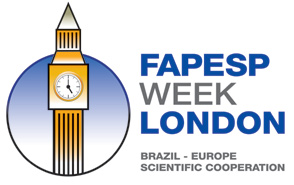FAPESP presents research opportunities at the Nature Jobs Career Expo 2013
Now in its 7th year, the annual event held in London offers a space for interaction between young scientists and potential employers

By Karina Toledo
Agência FAPESP – Research opportunities in São Paulo for young scientists were presented by FAPESP in England on September 19 during the Nature Jobs Career Expo 2013, one of the most important job fairs for careers in the sciences.
Completing its 7th year, the expo is held annually in London and offers a space for interaction between young scientists and potential employers, such as industry, universities, research institutes, foundations and other governmental organizations. According to the organizers, 65 institutions, including FAPESP, attended in 2013 to present their activities. Approximately 1,300 people were present, mostly young researchers.
The program included a workshop on “Research Opportunities in São Paulo,” presented by Hernan Chaimovich, special aide to FAPESP’s scientific department. In addition to demonstrating the panorama of current developments in science in Brazil, and São Paulo in particular, Chaimovich talked about FAPESP’s history, organization and operations.
“We described the opportunities for foreign or Brazilian researchers abroad who want to contribute to São Paulo State’s excellence in science and increase the number of research groups. As the audience is formed mainly by scientists at the beginning of their careers, the emphasis were on post-doctoral programs and young investigators,” explained Chaimovich.
In 2012, FAPESP’s total outlay for funding research was US$ 530,87 million in purchasing power parity (PPP). The foundation supported 906 regular post-doctoral fellowships ($ PPP 63,14 million), some 15% of which went to foreign researchers, the majority working in the exact, earth and biological sciences.
Under the auspices of the Young Investigators program, some 116 projects were supported in the country. Of these, 82 were research grants, and 34 were fellowships. The outlay totaled $ PPP 18,86 million.
To broaden the exchange between researchers and foreigners, FAPESP also signed 22 international scientific cooperation agreements, seven more than in 2011, reaching a total of 65 contracts with 14 countries: Germany, Argentina, Australia, Canada, Denmark, the United States, Spain, Finland, France, the Netherlands, Israel, Mexico, the United Kingdom and Switzerland.
Creating ties
After Chaimovich’s presentation, Euclides de Mesquita Neto, professor at Universidade Estadual de Campinas (Unicamp) and member of FAPESP’s Engineering Coordination Area, gave a workshop on “Opportunities in Exact Sciences and Engineering,” areas that received more than $ PPP 130 million in investments in 2012.
“We presented data on some of the highest impact projects developed in São Paulo in these areas, which have received significant resources and have a relatively large scientific community. There are opportunities for many researchers from abroad to consolidate their careers here,” says Mesquita Neto.
For Neto, the arrival of foreigners helps São Paulo’s researchers create ties with a network of international scientists and to receive training in areas that are still deficient in the state.
Marie-Anne van Sluys, a Universidade de São Paulo professor and member of FAPESP’s Life Sciences Coordination team, spoke about “Opportunities in Life Sciences,” which have received a $ PPP 300 million investment in 2012.
“The health sector received the majority of resources, followed by biology/ecology and agronomy/veterinary sciences. These fields offer an enormous array of opportunities for young and experienced scientists. Topics such as the cell biology of cancer, tropical diseases, biodiversity and environmental challenges are more frequent, as are health problems related to modern lifestyles, bioeconomics and food production. There are also new multidisciplinary areas, such as synthetic biology, which has faced challenges in attracting motivated investors,” said Sluys.









